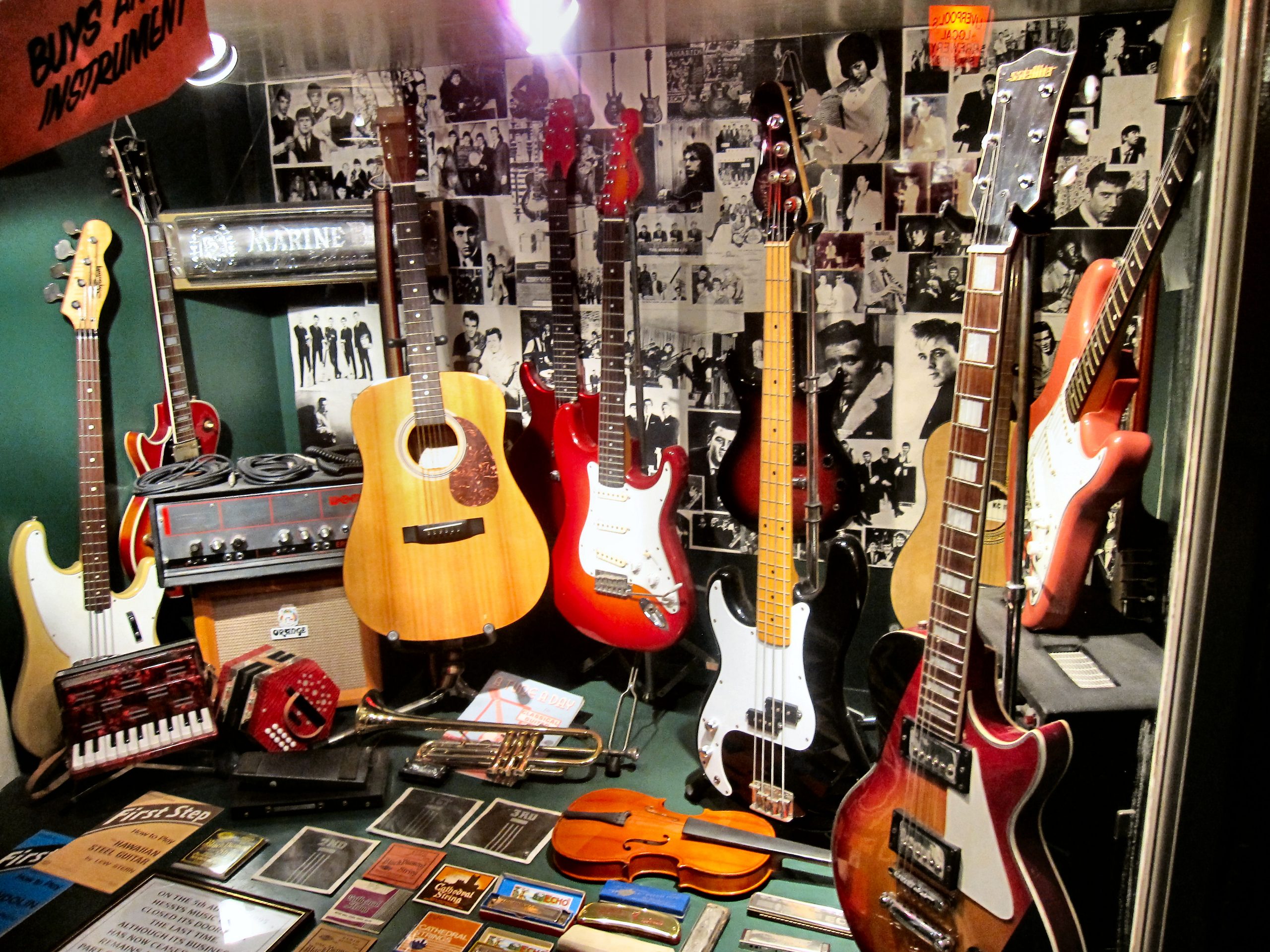
Music Stores: More Than a Business
When you go to a music store, there is a feeling of endless posibilities and as if you are were you belong as a musician. Of course it also depends on which store you find yourself in, but in many cases, it’s not just about selling products, it’s more about a community, where musicians can find a place to find instruments, fix them, broaden their posibilities with different accesories, and make bonds with other musicians.
Sometimes going into a music store can bea little intimidating, with all the instruments hanging around you, drum sets, pianos, and all the posibilites with the small problem of having enough money to be able to have it all.
There is nothing like going to the place were the only reason to be there is music.
Forty-eight Street Stores
In an article by the New Yorker by Thomas Beller, he writes about some of the greatest music stores in New York, that are now gone.
Forty-eighth Street was once famous for stores that sold musical instruments. Those stores catered to musicians of every stripe, but the vibe was very rock and roll. The names that stand out for me are Manny’s and Sam Ash, but there were several others, packed together, one next to the other, each a world unto itself. In my own private atlas of the city, that street was also notable for the degree its character changed in the course of one block, from Seventh Avenue to Sixth Avenue. The music stores, like the support of a seesaw, were the point at which that character made its pivot.

Writing about this minutia brings me back to the spirit of those music stores on Forty-eighth Street: they weren’t merely a place to buy musical equipment. They were an immersive world where all this stuff was highly important. There were photos on the wall, the trappings of fame, money, the sense that giants had strode into this place, that the gods bought instruments here, or just strings and picks. Just by walking into these places you became a part of the ecclesiastical grit of rock music in New York.
Comunnity
That is the magical thing about all these little experiences in music stores, it’s all about being a part of something bigger than yourself.
There was also the question of style and taste—the look of the guitar being tried out. The dress of the player. The kind of music the potential buyer was interested in. It was an exercise in both “Name That Tune”—because usually, the riffs were famous riffs—and name that style. This guy is into Kiss, this guy into the Byrds, this one into the Clash. There was a lot of metal. I was going to these stores from the late nineteen-seventies until the mid-nineties, a time when the hard crunch of metal was prevalent in one form or another. Maybe I shouldn’t say metal. Maybe I should say rock and roll, in all its glorious young-dumb-and-full-of-come stupidity. Or just rock.

As a musician, it’s very important to be out there as such, because there is definitely a lot to learn from other musicians, but learning is not just about a classroom or online music lesson. Little things such as a tip from a stranger that plays in a music store can change your relationship with music, even if it is just a little bit, these changes matter in the big picture.
Whether it is learning about performance, instruments, history, music in general or just knowing people, music stores exist as a place for reunion and excitment for musicians of all ages, and while it’s a sort of tradition that doesn’t always appear to be real, it is real in many places, and it certainly is a candy story for musicians.
